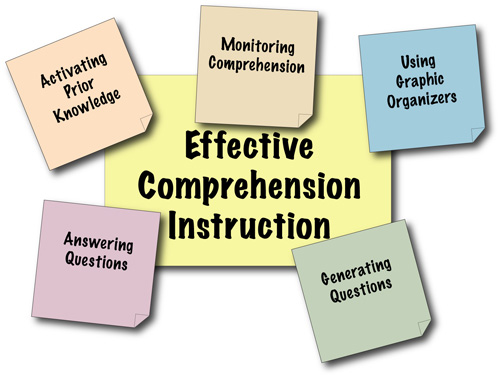What should content-area teachers know about comprehension instruction?
Page 8: Components of Effective Comprehension Instruction
Content-area teachers often assign work such as reading and answering questions about a chapter, distinguishing relevant from extraneous information in word problems, or writing a summary of subject matter material. Such assignments require students to understand or comprehend what they read. Unfortunately, little time is typically dedicated to teaching students how to monitor their comprehension or use comprehension skills in completing assignments. Teachers can improve students’ comprehension skills by explicitly teaching strategies to help them:
- Activate prior knowledge about a topic or concept
- Monitor comprehension and correct misunderstandings while reading
- Use graphic organizers to relate information from the text
- Answer different kinds of questions about the text
- Generate questions about the material in the text

Each of these comprehension strategies, which can be used independently or in combination, will be discussed on the following pages.